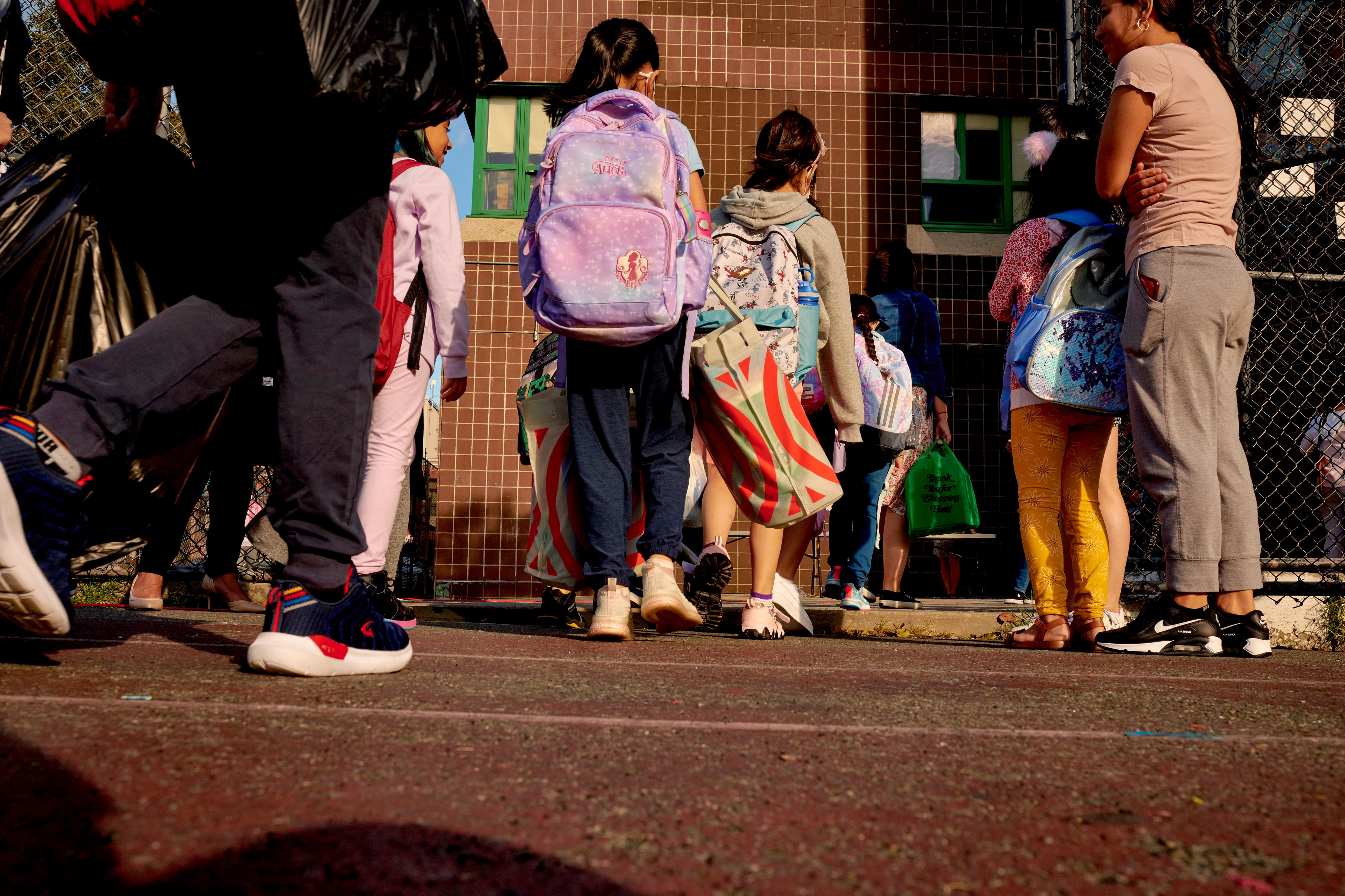Sign up for Chalkbeat New York’s free daily newsletter to keep up with NYC’s public schools.
A New York City Council resolution passed last month stirred some confusion over whether the city’s public schools would soon adopt a universal dress code policy.
Despite some headlines after the resolution’s passage, the resolution cannot mandate action, and the city’s Education Department has so far given no indication it will implement such a policy during the next school year.
Currently, principals have leeway to develop and implement their own dress code policies, meaning students across the city may have different rules depending on their school’s policies.
But in several hearings over recent months, Council members have expressed concerns that dress codes at some schools may unfairly target students of color, as well as those who are LGBTQ+.
Here’s a look at what action the Council took, why they took it, and what rules remain in effect for the coming school year:
City Council passes a bill and resolution on dress codes
City Council members passed a two-pronged legislative package. One was a bill that requires the city’s Education Department to report data on dress code policies, violations, and penalties in public schools. The other was a resolution calling on the department to adopt a universal dress code policy.
Though the bill will require action from the Education Department, the department can choose not to adopt a universal dress code policy in response to the resolution. (The Council can require data collection and other reporting from the Education Department, but is unable to set department policies.)
Discriminatory dress codes prompt City Council concerns
At recent hearings, council members expressed concerns that students may face discriminatory school dress code policies — particularly students who are LGBTQ+ and students of color. Some students said they’d seen policies applied unfairly and arbitrarily at their schools.
“I didn’t know about the term ‘dress code’ until middle school, when I noticed peers in school were getting tapped for wearing certain things like tank tops, skirts, shorts, or crop tops,” said Natalie Henry, a member of the Girls for Gender Equity Speakers’ Bureau, during a June hearing. “There wasn’t a clear dress code policy, though, so its enforcement seems to come from school staff members’ own unpredictable, personal, and sometimes, biased opinions.”
Jasmina Salimova, another member of Girls for Gender Equity, said her first introduction to dress codes came in middle school when her friend with a “curvier body type” was “dress coded” for wearing a tube top.
“This confused me, because other girls in my school did not get in trouble for their tube tops or tank tops; the only difference was their body types,” Salimova said. “That’s when I started realizing that the dress code targeted students with specific body types.”
Council members said increased transparency and oversight was needed to ensure policies were applied fairly across schools. Deputy Speaker Diana Ayala, a sponsor of the reporting bill, said students and families should be able to easily access any school’s dress code policies, allowing them to better ensure such policies are non-discriminatory.
“Uneven dress code policies in New York City public schools have led to disproportionate discipline and consequences for students simply expressing themselves,” Ayala said last month. “My hope is that this transparency will bring us towards consistent, inclusive, and fair policies across our school system that do not unjustly target our students.”
Education Department offers dress codes guidelines, not universal policy
The city’s Education Department has a set of dress code guidelines, which require schools to implement them “equally and in a non-discriminatory manner,” and to notify staff, students, and parents in writing about the dress code, as well as the consequences for violating it.
“Dress codes are decided at the individual school level and require that schools examine their reasoning and justification for their respective policies,” Education Department spokesperson Nathaniel Styer said in a statement. “Schools must consider evolving generational, cultural, social, and identity norms. Also, dress codes must be gender-neutral and cannot prohibit certain types of clothing that are stereotypically associated with one gender, and they must be implemented equally and in a non-discriminatory manner.”
At the City Council hearing in June, Education Department officials said students cannot be suspended for dress code violations. However, students can be removed from the classroom for repeated violations, officials said.
Styer advised any students concerned about their school’s dress code policy to contact their principal and School Leadership Team, a group of parents, staff, and other community members who develop policies for a school.
He did not comment on whether the Education Department would take any further action in response to the council resolution.
Julian Shen-Berro is a reporter covering New York City. Contact him at jshen-berro@chalkbeat.org.






